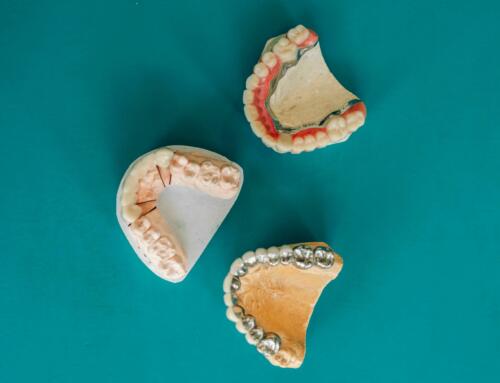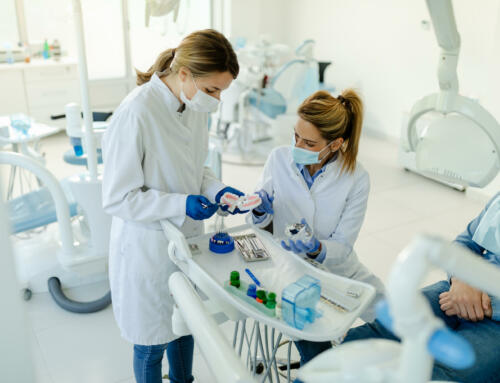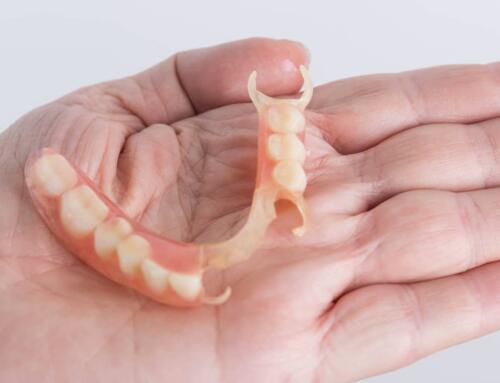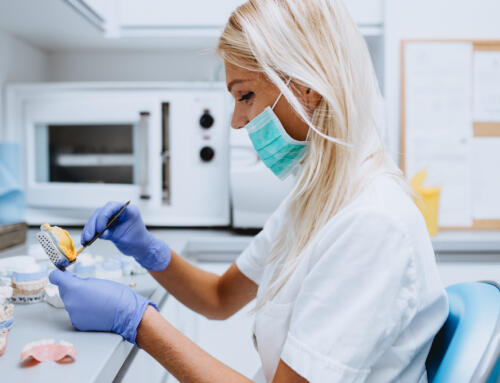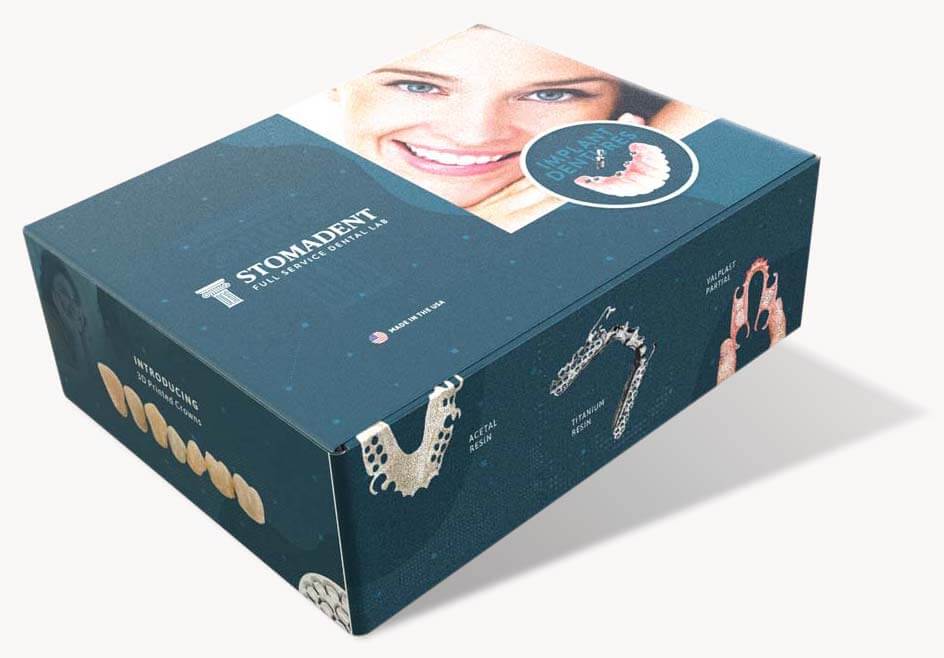
By David Hudnall, DMD
Partial dentures made from thermoplastic materials are a wonderful option to have in your armamentarium of offerings as a dental professional that you may not have considered. You may have prescribed a flexible partial before and even had a bad experience attempting to deliver one.
But the right dental lab can produce a restoration for you that drops into place, saving you time and frustration while making you look like a hero.
TCS Partial and Valplast Denture Insights
What are the flexible partial options? Does one brand have a monopoly on the market? Let’s talk about the benefits of TCS flexible partials vs Valplast as well as the drawbacks and potential pitfalls to avoid so that patients with the best indications for success have an alternative to wearing conventional partial or porcelain veneers.
TCS Flexible Partial Dentures
The development of TCS flexible partials rests on the success of Valplast, the innovator of flexible partial dentures. TCS took a great material a step further with an altered nylon-fiber formulation that contains a greater quantity of resin, making it easier to heat, remold, and adjust to match the patient’s exact tissue topography.
Since the thermoplastic material engages in undercuts present in the mouth and takes advantage of them as retention, flexible partials are able to offer great strength without the bulkiness and heaviness associated with other types of partials in cosmetic dentistry. The material’s resistance to moisture absorption means that it is less likely to retain odors compared with acrylic resins.
While the idea of a flexible complete denture sounds like a great idea, the baseplate material requires seamless contact with the natural teeth and tissue for support and retention. Therefore, complete dentures made from flexible materials are not a practical tooth replacement solution for any patient or dental office.
Valplast Dentures
Valplast set the standard as an alternative to traditional cast metal partial dentures when they developed the first commercially available tissue-borne tooth replacement option for patients who find other types of partials uncomfortable. Finally, it is possible to make a partial that doesn’t sit in a drawer!
The thermoplastic appliance is comfortable to wear because the masticatory forces are distributed evenly over the entire supporting ridge. Since the partial flexes with the contours of the mouth while chewing, the baseplate provides stimulation to the jawbone during function, giving the alveolar ridge purpose.
While Valplast offers many benefits, the requirement for intimate contact with all aspects of the underlying tissue makes them unsuitable for immediate placement to replace missing teeth. In addition, the Valplast material cannot be relined, necessitating replacement of the partial when shrinkage and tissue changes occur.
Clinical Considerations for TCS Flexible Partial vs Valplast
Indications for both TCS Flexible Partials vs Valplast partials are largely the same. Both materials work equally well to address the following restorative treatments:
- Flipper to replace one or a few missing teeth in the anterior segment of the mouth
- Unilateral partial to replace one or two missing teeth
- As a temporary healing appliance for patients undergoing implant integration
- Patients with a history of allergies to dental materials containing nickel or monomers
- Patients who have aesthetic objections to visible metal
Flexible saddles may be combined with a metal framework for improved stability while taking advantage of gum-colored clasps to secure the partial in aesthetic areas
Both materials also have similar contraindications for use. These include:
- Severe buccal inclination of posterior teeth, unilaterally or bilaterally
- Less than 5mm of vertical clearance
- Collapsed bites
- Deep bites, especially with excessive overjet where lower anterior teeth contact the palate
Flexible material is not suitable for the fabrication of complete dentures
Durability
The nylon-based resin materials are virtually unbreakable when dropped. When cared for correctly, flexible partials will last an average of 5 years before replacement is required.
Although the material is break-resistant, it will not withstand abuse. Patients must take special care to preserve the integrity and resiliency of their flexible appliance by using cleaning products specially designed to maintain the flexibility of the material. Many over-the-counter dental care products will harden the elastic nature of the partial with time, making it more rigid and less comfortable to wear.
In addition, the teeth of pets can destroy the baseplate, rendering it useless. Patients should be reminded to store their partial in a sealed container of water (not necessarily partial denture cases) any time the partial is removed from the mouth.
Aesthetics
Because the baseplate is partially translucent, it can take on the coloration of the underlying tissue, making the partial flanges and saddles much less noticeable than most acrylic resins. Because the clasps are also fabricated from the same material as the baseplate, the clasps blend with the gingiva with no delineation or change of material in order to gain retention.
The most discriminating and aesthetically conscious patients will be very pleased with the look and natural appearance of flexible partials because they seem to disappear in the mouth.
Cost-Effectiveness
TCS flexible partials and Valplast require a manufacturing that is considerably more complex than the process of fabricating a traditional acrylic partial denture. While the cost of flexible partials is comparable to traditional cast metal partial dentures, the patient is receiving a lightweight, non-allergenic, metal-free solution to replace their missing teeth.
Many patients say that the tradeoff is worth the extra expense to solve issues that kept them from wearing their former partial.
Further Clinical Considerations
Flexible partials can provide added comfort to the patient, the type of comfort in ways that many patients have never experienced with partials constructed from bulkier materials. While total material flexibility can be perceived as a benefit to many patients, some patients do find the material to be too flexible, inhibiting their ability to masticate a bolus of food in a reasonable amount of time. This is particularly a concern for patients without posterior teeth. But there is a solution.
Both TCS flexible partials and Valplast offer the creation of hybrid appliances that allow the patient the ability to enjoy the comfort of the soft nylon-based material against the gum tissue with the stability of a metal framework to improve chewing capacity and stability in function. Clasps for hybrid partial dentures may be made from metal or the flexible resin in areas of particular visual concern for improved aesthetics.
Benefits of a Premier Dental Lab
Fabrication of flexible partials requires skilled laboratory technicians who are very familiar with the design, production, and finishing of these appliances to achieve a partial that makes intimate contact with the underlying supporting tissue while requiring almost no adjustments at delivery. It is a tall order.
That’s why there is no substitute for working with a premier dental lab that can deliver an exceptional clinical outcome to address your patient’s unique treatment needs every time.
Stomadent Dental Lab: The Ideal Partner
Stomadent Dental Lab continues to invest time and resources into the best materials and great talent who thoroughly understand what it takes to make restorative dental appliances that improve the lives of your patients.
No matter the tooth replacement requirements, Stomadent has a solution to fit every need and every budget. We truly are your partner in delivering exceptional quality and results!

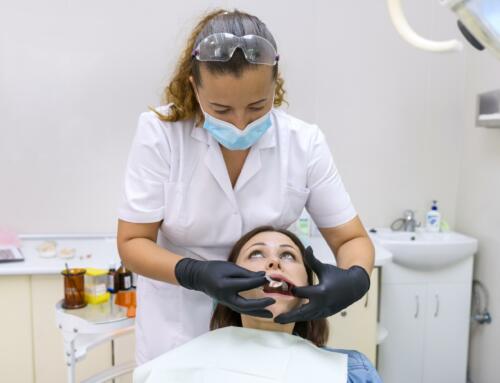
![Partial Denture Clasp Types [Assessing Clinical Situations]](https://stomadentlab.com/wp-content/uploads/2024/03/dental-implant-model-dental-bridge-in-hand-dentis-2023-11-27-05-11-13-utc-scaled-500x383.jpg)
